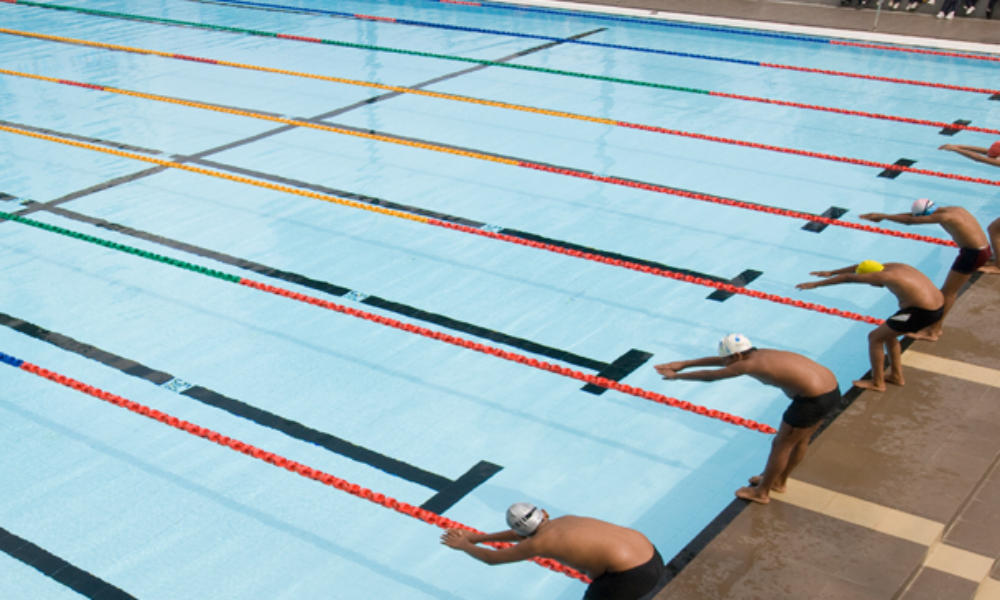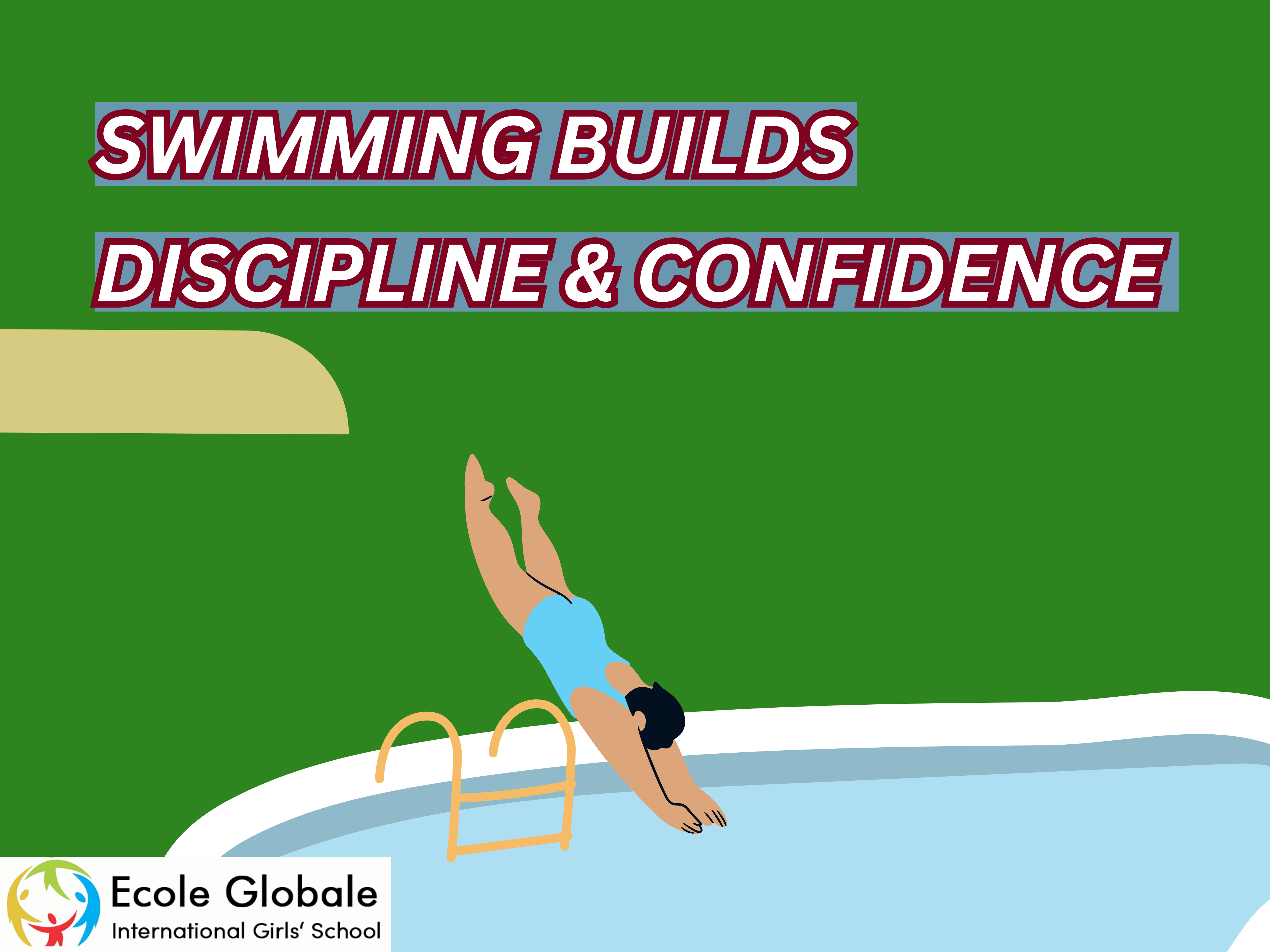Participation in sports, particularly swimming, plays a crucial role in shaping students’ overall development, especially in schools across India. Events like the 6th Annual Invitational Inter-School Swimming Competition highlight this impact, where students showcase their skills and sportsmanship.
Schools are not just centers of academic learning; they are environments where children learn essential life skills, including discipline and confidence. By engaging in sports like swimming, students gain valuable lessons that go beyond textbooks, helping them grow into well-rounded individuals.
The Role of Sports in Schools in India

Schools in India have traditionally focused on academics, but there is a growing recognition of the importance of extracurricular activities, particularly sports, in developing students’ life skills. Incorporating sports like swimming into school curriculums offers students a break from their studies while teaching them discipline, teamwork, and resilience.
Swimming, as a sport, is especially beneficial due to its structured nature and the self-discipline it requires. It is not just a physical activity but a learning experience that enhances both mental and emotional strength. For students, swimming provides a unique combination of physical fitness, mental alertness, and social engagement.
1. How Swimming Builds Discipline in Students
Discipline is a key attribute for success, and swimming helps instill this trait in students in several ways:
Establishing a Routine
- Consistency: Swimming practices are often scheduled, requiring students to maintain a consistent routine. This consistency translates into better time management and helps students understand the value of punctuality and commitment.
- Responsibility: Being responsible for attending practices, maintaining their gear, and adhering to schedules fosters a sense of responsibility among students.
Focus and Concentration
- Setting Goals: Swimmers are trained to set specific goals, such as improving their speed or mastering a stroke. Achieving these goals requires focus, dedication, and the ability to stay on task, all of which are essential components of discipline.
- Overcoming Challenges: Swimming teaches students to face challenges head-on. Whether it’s perfecting a difficult stroke or swimming against the clock, students learn that discipline is the pathway to overcoming obstacles.
Managing Time Efficiently
- Balancing Academics and Sports: Students who participate in swimming must balance their training with academic responsibilities. This helps them develop excellent time management skills, a critical component of discipline.
- Prioritizing Commitments: With swimming meets, practices, and schoolwork, students learn to prioritize their tasks, a skill that will benefit them throughout their lives.
2. How Swimming Builds Confidence in Students
Confidence is another key life skill that sports like swimming nurture in students. Here’s how swimming helps students develop self-assurance:
Achieving Personal Milestones
- Skill Mastery: Every time a student masters a new swimming technique or improves their timing, it boosts their self-esteem. Accomplishing these small goals contributes to a sense of achievement and builds confidence.
- Positive Reinforcement: Coaches and teammates provide encouragement, helping students recognize their progress and abilities. This positive feedback reinforces self-belief and confidence.
Overcoming Fears
- Facing the Water: For many, swimming can be intimidating at first. Learning to swim helps students conquer their fear of water, which translates into greater confidence in facing other fears and challenges in life.
- Competing: Participating in competitions teaches students to handle pressure and perform under stressful conditions. Winning boosts confidence, but even losing teaches valuable lessons about resilience and self-improvement.
Developing Leadership Skills
- Team Dynamics: While swimming can be an individual sport, relay races and team events foster leadership skills. Students learn to motivate their teammates, lead by example, and handle responsibilities, further enhancing their confidence.
- Self-Advocacy: Confident swimmers learn to advocate for themselves, whether it’s asking for help with a technique or pushing for more challenging practices.
3. The Broader Impact of Sports Participation on Student Life
Participating in swimming and other sports extends benefits beyond the pool. Schools in India that incorporate sports into their curriculum see students who are more engaged, healthier, and better equipped to handle the pressures of academic life.
Improved Academic Performance
- Better Focus: Physical activity, like swimming, boosts brain function, helping students focus better in class. The discipline learned in sports carries over into their studies, leading to improved academic performance.
- Stress Relief: Sports act as a natural stress reliever, reducing anxiety and helping students maintain a balanced mental state. This is particularly important in the high-pressure academic environments often found in schools in India.
Enhanced Social Skills
- Team Interaction: Swimming encourages social interaction, teamwork, and communication. Students learn to work with peers, respect others, and build friendships, enhancing their social skills.
- Community Building: Sports events and competitions bring students together, fostering a sense of community and school spirit. These experiences are invaluable in creating a supportive school environment.
Promoting a Healthy Lifestyle
- Physical Fitness: Swimming is an excellent full-body workout that keeps students physically fit. Schools that promote sports contribute to healthier lifestyles for their students, reducing the risks of lifestyle-related illnesses.
- Healthy Habits: Beyond physical fitness, students who engage in sports are more likely to adopt other healthy habits, such as balanced eating and adequate sleep, reinforcing overall well-being.
Conclusion
Participation in sports like swimming is more than just a fun activity for students; it is a powerful tool that builds discipline, boosts confidence, and fosters essential life skills. Schools in India are increasingly recognizing the importance of including sports in their curricula, understanding that the lessons learned in the pool translate into successes in the classroom and beyond.
By encouraging students to engage in swimming, schools are not only promoting physical health but also nurturing disciplined, confident, and resilient individuals. The values instilled through sports participation will help students navigate the challenges of life, empowering them to achieve their full potential both academically and personally.
Through a balanced approach that combines academics with extracurricular activities like swimming, schools in India are helping shape a brighter, more confident future for their students.









